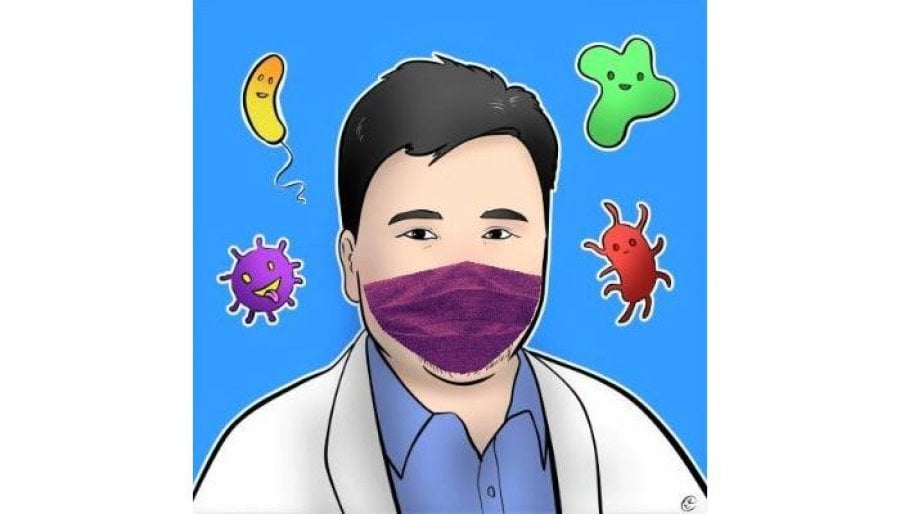Melvin Sanicas on COVID-19 science communication
3 November 2021 London School of Hygiene & Tropical Medicine London School of Hygiene & Tropical Medicine https://lshtm.ac.uk/themes/custom/lshtm/images/lshtm-logo-black.png
We are in the digital age or the information age - the challenge is that the ‘information age’ has become the ‘too much information age’. We are in a time of information overload, which makes it difficult for people to truly understand the issue and effectively make decisions simply because of the excessive quantity of daily information, which sometimes are contradictory.
As the world responds to the pandemic, we face the challenge of information overload, some of which may be false and potentially harmful. Inaccurate information spreads fast and wide, making it difficult for the public to identify verified facts and advice from trusted sources such as the local health authority or WHO. It is important to remember that this is the first-ever pandemic in the internet age; during the time of SARS not everyone had access to the internet. Now, almost everyone in the world has 24/7 access or at least regular access to the internet.
Even before COVID-19, I have been active in science communication and writing scientific news articles and Op-Eds since 2016. With more and more anti-science misinformation on the internet and social media, as well as receiving encouragement from other scientists like Dr Peter Hotez, I got myself a Twitter account @Vaccinologist four years ago. I use the platform to simplify scientific news, debunk falsehoods, and engage scientists and science communication organisations.
New pathogens, including the novel coronavirus SARS-CoV-2, are accompanied by high levels of uncertainty. The public understandably wants answers, and we see people turning to social media for those. One problem is that social networks are rife with inaccurate information and misinformation. Besides COVID-19, we are clearly fighting another viral threat — fake news and misinformation, ranging from conspiracy theories about the origins of the virus to unproven treatments. Apart from my regular posts on COVID-19 developments and updates, I work with TED-Ed to create educational videos related to COVID-19: What is a coronavirus?; When is a pandemic over?; How do ventilators work?; How fast can a vaccine be made? – these videos now have over 10 million of views and have been translated into over 20 different languages.
The world needs more scientists who want to translate their expertise into effective communication on global health issues. It’s our responsibility as public health experts, scientists, and allies of scientists to speak up (in any way we can) with interviews, op-eds, podcasts, blogs, or just our own immediate social circles through our personal social media posts. I also hope more and more alumni will take the time to share their expert views with journalists and engage with the mainstream media and social media; there is an important role for physicians, scientists, and public health specialists as advocates for society as a whole because when there’s a void of accurate scientific-based information, what fills the vacuum? Bots, trolls, and conspiracy theorists spreading seeds of doubt and misinformation that may have dangerous consequences.
I was invited to join the Royal Society for Public Health’s #RSPHSparksDebates with a stellar line-up Professor Lisa Ackerley, Professor Bobby Duffy, Dr Simon Piatek, Noreen Khan, and Dr Venu Manikavasagar to discuss COVID, COVID vaccines and misinformation. It was great to see so many people working to listen to community concerns and questions, build resilience to misinformation, and empower communities to take positive action and fight the spread of dangerous false information.
LSHTM’s MSc programme is the right blend of public health, immunology, epidemiology, and biology, all of which are very important in gauging and understanding new and emerging infectious diseases such as COVID-19.
As we continue to confront COVID-19 and future challenges, whether they be another pandemic or some other global issue, good-quality and effective scientific communication is essential to help us navigate through the noise of fear and assumptions based on the unknown.
Want to share your story? Email alumni@lshtm.ac.uk.